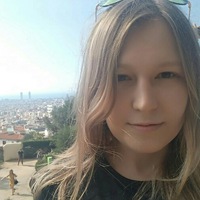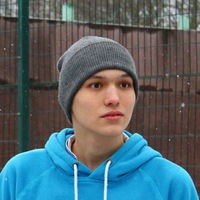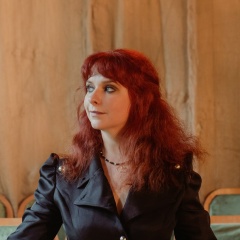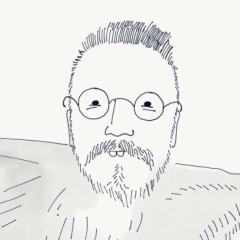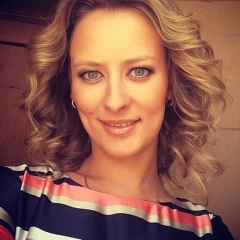#ехайботай #IMO2018 #ММО2018
Сегодня пройдет второй тур международной олимпиады по математике в городе Клуж-Напока в Румынии. В составе российской делегации целых 19 человек, из них шестеро — собственно участники. Почему так много людей? Для этого нужно понять, как олимпиада устроена.
Чтобы провести международное соревнование по математике, нужно ответить на конкретные вопросы: Кто будет составлять вариант? Кто будет проверять работы? Как оценивать решения? И, наконец, нужно решить вопрос языковых различий, как по поводу условий задач, так по поводу решений.
Взрослые в составе каждой делегации имеют конкретные должности: Deputy Leader (у нас в этом году это Кирилл Сухов), Leader (в нашей делегации эта должность занята Назаром Агахановым), Observer'ы A, Observer'ы B и иногда бывает Observer C. Leader и Observer A занимаются частью олимпиады, связанной с задачами, и поэтому не могут общаться с детьми до и во время туров. Deputy Leader и Observer B, наоборот, работают с детьми и, соответственно, до начала олимпиады не имеют доступа к задачам (даже к long-list'у, о нем ниже). Observer C обладает теми же правами, что и участник олимпиады, только задачи не решает.
В одном из предыдущих постов была устаревшая информация о должности Максима Пратусевича: он не руководитель, а обозреватель Б.
Страна-хозяйка формирует Problem Selection Committee, задачный комитет, который по большей части состоит из ее же математиков, и еще двух-трех приглашенных из других стран, а также назначает координаторов.
Задолго до олимпиады, в течение нескольких месяцев страны-участницы присылают задачному комитету задачи, которые они хотели бы включить в вариант олимпиады, так формируется long-list. Затем задачный комитет просматривает long-list и отбирает из него "незасвеченные" задачи (то есть, такие задачи, которые не попадались ни на каких крупных международных соревнованиях, и не похожи, не аналогичны им). Так на свет рождается short-list. Эти задачи красиво печатаются и оформляются в брошюру, которая затем выдается Leader'ам. Они приезжают на олимпиаду раньше детей для того, чтобы уже из short-list'а составить финальный вариант олимпиады. Вариант переводится почти на 60 разных языков, к задачам составляются критерии проверки: предполагаются различные (обычно не больше трех) варианты решения, каждое решение разбивается в некотором смысле на этапы, каждый этап оценивается в баллах.
Потом наступают два соревновательных дня, в течение которых участники решают по три задачи и пишут свои решения на своих языках.
Затем наступает этап координации: члены делегаций проверяют решения своих команд. Проверка позадачная: каждый проверяет одну задачу (максимум две). После этого проверявшие отправляются к координаторам и рассказывают, что получилось: например, Петя Сидоров вот в этой задаче приводит второй вариант решения, но упускает вот этот важный момент, ему 4 балла.
Наконец, когда все работы проверены и откоординированы, жюри решает, за сколько баллов какую медаль давать. "Омедаливают" около половины всех участников в соотношении 1:2:3 (примерно 1/12 получит золото, 1/6 — серебро и 1/4 — бронзу). Похвальную грамоту получат все, кто получил 7 баллов хотя бы по одной задаче и не получил медали. Конечно, редко бывает, что можно выделить ровно 1/12 от всех участников. Обычно оказывается, что граница в 1/12 проходит где-то посреди, например, участников, набравших 28 баллов. Тогда жюри отдельно договаривается, давать ли золото за 28 баллов, или нет.
Затем происходят торжественное награждение, закрытие олимпиады, а после все, счастливые и уставшие, разъезжаются по домам.
А вот вам маскот ММО2018: карпатский медведь.
Сегодня пройдет второй тур международной олимпиады по математике в городе Клуж-Напока в Румынии. В составе российской делегации целых 19 человек, из них шестеро — собственно участники. Почему так много людей? Для этого нужно понять, как олимпиада устроена.
Чтобы провести международное соревнование по математике, нужно ответить на конкретные вопросы: Кто будет составлять вариант? Кто будет проверять работы? Как оценивать решения? И, наконец, нужно решить вопрос языковых различий, как по поводу условий задач, так по поводу решений.
Взрослые в составе каждой делегации имеют конкретные должности: Deputy Leader (у нас в этом году это Кирилл Сухов), Leader (в нашей делегации эта должность занята Назаром Агахановым), Observer'ы A, Observer'ы B и иногда бывает Observer C. Leader и Observer A занимаются частью олимпиады, связанной с задачами, и поэтому не могут общаться с детьми до и во время туров. Deputy Leader и Observer B, наоборот, работают с детьми и, соответственно, до начала олимпиады не имеют доступа к задачам (даже к long-list'у, о нем ниже). Observer C обладает теми же правами, что и участник олимпиады, только задачи не решает.
В одном из предыдущих постов была устаревшая информация о должности Максима Пратусевича: он не руководитель, а обозреватель Б.
Страна-хозяйка формирует Problem Selection Committee, задачный комитет, который по большей части состоит из ее же математиков, и еще двух-трех приглашенных из других стран, а также назначает координаторов.
Задолго до олимпиады, в течение нескольких месяцев страны-участницы присылают задачному комитету задачи, которые они хотели бы включить в вариант олимпиады, так формируется long-list. Затем задачный комитет просматривает long-list и отбирает из него "незасвеченные" задачи (то есть, такие задачи, которые не попадались ни на каких крупных международных соревнованиях, и не похожи, не аналогичны им). Так на свет рождается short-list. Эти задачи красиво печатаются и оформляются в брошюру, которая затем выдается Leader'ам. Они приезжают на олимпиаду раньше детей для того, чтобы уже из short-list'а составить финальный вариант олимпиады. Вариант переводится почти на 60 разных языков, к задачам составляются критерии проверки: предполагаются различные (обычно не больше трех) варианты решения, каждое решение разбивается в некотором смысле на этапы, каждый этап оценивается в баллах.
Потом наступают два соревновательных дня, в течение которых участники решают по три задачи и пишут свои решения на своих языках.
Затем наступает этап координации: члены делегаций проверяют решения своих команд. Проверка позадачная: каждый проверяет одну задачу (максимум две). После этого проверявшие отправляются к координаторам и рассказывают, что получилось: например, Петя Сидоров вот в этой задаче приводит второй вариант решения, но упускает вот этот важный момент, ему 4 балла.
Наконец, когда все работы проверены и откоординированы, жюри решает, за сколько баллов какую медаль давать. "Омедаливают" около половины всех участников в соотношении 1:2:3 (примерно 1/12 получит золото, 1/6 — серебро и 1/4 — бронзу). Похвальную грамоту получат все, кто получил 7 баллов хотя бы по одной задаче и не получил медали. Конечно, редко бывает, что можно выделить ровно 1/12 от всех участников. Обычно оказывается, что граница в 1/12 проходит где-то посреди, например, участников, набравших 28 баллов. Тогда жюри отдельно договаривается, давать ли золото за 28 баллов, или нет.
Затем происходят торжественное награждение, закрытие олимпиады, а после все, счастливые и уставшие, разъезжаются по домам.
А вот вам маскот ММО2018: карпатский медведь.
# ehaybotay # IMO2018 # MMO2018
Today will be the second round of the International Mathematics Olympiad in the city of Cluj-Napoca in Romania. The Russian delegation consists of as many as 19 people, six of them are the participants themselves. Why so many people? To do this, you need to understand how the Olympiad is organized.
To hold an international competition in mathematics, you need to answer specific questions: Who will make up the option? Who will check the work? How to evaluate solutions? And, finally, it is necessary to solve the problem of linguistic differences, both about the conditions of the tasks, and about solutions.
Adults in each delegation have specific posts: Deputy Leader (this year we have Kirill Sukhov), Leader (in our delegation this position is occupied by Nazar Agahanov), Observers A, Observers B and sometimes Observer C. Leader and Observer A are involved in the task-related part of the Olympiad and therefore cannot communicate with the children before and during the tours. Deputy Leader and Observer B, on the contrary, work with children and, accordingly, prior to the start of the Olympiad, they do not have access to tasks (even to the long-list, below). Observer C has the same rights as the participant of the Olympiad, but does not solve the problem.
In one of the previous posts there was outdated information about the post of Maxim Pratusevich: he is not the head, but the observer B.
The host country forms the Problem Selection Committee, a task committee, which for the most part consists of its own mathematicians, and another two or three invited from other countries, and also appoints coordinators.
Long before the Olympiad, within a few months the participating countries send tasks to the task committee that they would like to include in the variant of the Olympiad, this is how a long-list is formed. Then, the task committee looks at the long-list and selects from it "non-illuminated" tasks (that is, tasks that did not come across any major international competitions, and are not similar, not similar to them). So the short-list is born. These tasks are beautifully printed and arranged in a brochure, which is then issued to Leaders. They come to the Olympiad before children in order to make the final version of the Olympiad from the short-list. The variant is translated into almost 60 different languages, test criteria are compiled: different (usually not more than three) solution solutions are assumed, each solution is divided into stages in some sense, each stage is evaluated in points.
Then there are two days of competition, during which participants solve three problems and write their solutions in their own languages.
Then comes the stage of coordination: members of delegations check the decisions of their teams. Test backward: each checks one task (maximum two). After that, the screeners go to the coordinators and tell what happened: for example, Petya Sidorov gives the second solution in this task, but misses this important point, he scores 4 points.
Finally, when all the works are checked and coordinated, the jury decides for how many points what medal to give. About half of all participants are “cast off” at a ratio of 1: 2: 3 (approximately 1/12 will receive gold, 1/6 - silver and 1/4 - bronze). All those who received 7 points for at least one task and did not receive a medal will receive a certificate of appreciation. Of course, it rarely happens that you can select exactly 1/12 of all participants. It usually turns out that the 1/12 border is somewhere between, for example, participants who score 28 points. Then the jury separately agrees on whether to give the gold for 28 points or not.
Then there is a solemn rewarding, closing of the Olympiad, and then everyone, happy and tired, go home.
And here's your MMO2018 mascot: the Carpathian bear.
Today will be the second round of the International Mathematics Olympiad in the city of Cluj-Napoca in Romania. The Russian delegation consists of as many as 19 people, six of them are the participants themselves. Why so many people? To do this, you need to understand how the Olympiad is organized.
To hold an international competition in mathematics, you need to answer specific questions: Who will make up the option? Who will check the work? How to evaluate solutions? And, finally, it is necessary to solve the problem of linguistic differences, both about the conditions of the tasks, and about solutions.
Adults in each delegation have specific posts: Deputy Leader (this year we have Kirill Sukhov), Leader (in our delegation this position is occupied by Nazar Agahanov), Observers A, Observers B and sometimes Observer C. Leader and Observer A are involved in the task-related part of the Olympiad and therefore cannot communicate with the children before and during the tours. Deputy Leader and Observer B, on the contrary, work with children and, accordingly, prior to the start of the Olympiad, they do not have access to tasks (even to the long-list, below). Observer C has the same rights as the participant of the Olympiad, but does not solve the problem.
In one of the previous posts there was outdated information about the post of Maxim Pratusevich: he is not the head, but the observer B.
The host country forms the Problem Selection Committee, a task committee, which for the most part consists of its own mathematicians, and another two or three invited from other countries, and also appoints coordinators.
Long before the Olympiad, within a few months the participating countries send tasks to the task committee that they would like to include in the variant of the Olympiad, this is how a long-list is formed. Then, the task committee looks at the long-list and selects from it "non-illuminated" tasks (that is, tasks that did not come across any major international competitions, and are not similar, not similar to them). So the short-list is born. These tasks are beautifully printed and arranged in a brochure, which is then issued to Leaders. They come to the Olympiad before children in order to make the final version of the Olympiad from the short-list. The variant is translated into almost 60 different languages, test criteria are compiled: different (usually not more than three) solution solutions are assumed, each solution is divided into stages in some sense, each stage is evaluated in points.
Then there are two days of competition, during which participants solve three problems and write their solutions in their own languages.
Then comes the stage of coordination: members of delegations check the decisions of their teams. Test backward: each checks one task (maximum two). After that, the screeners go to the coordinators and tell what happened: for example, Petya Sidorov gives the second solution in this task, but misses this important point, he scores 4 points.
Finally, when all the works are checked and coordinated, the jury decides for how many points what medal to give. About half of all participants are “cast off” at a ratio of 1: 2: 3 (approximately 1/12 will receive gold, 1/6 - silver and 1/4 - bronze). All those who received 7 points for at least one task and did not receive a medal will receive a certificate of appreciation. Of course, it rarely happens that you can select exactly 1/12 of all participants. It usually turns out that the 1/12 border is somewhere between, for example, participants who score 28 points. Then the jury separately agrees on whether to give the gold for 28 points or not.
Then there is a solemn rewarding, closing of the Olympiad, and then everyone, happy and tired, go home.
And here's your MMO2018 mascot: the Carpathian bear.

У записи 24 лайков,
0 репостов,
1508 просмотров.
0 репостов,
1508 просмотров.
Эту запись оставил(а) на своей стене Нина Ягодная














